Leveling Up: How RPGs Build Confidence in Young Learners
Using RPGs like Dungeons and Dragons to build confidence in children.
Matt Trammell
9/17/20246 min read

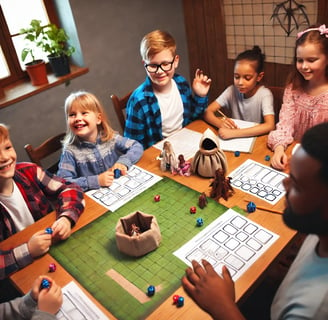
Introduction
Role-playing games (RPGs) like Dungeons & Dragons (D&D) have become widely recognized not just as exciting pastimes but as powerful tools for personal growth. These games invite players into immersive worlds, where they take on unique characters and embark on adventures full of creativity, collaboration, and problem-solving. What many may not realize, however, is the profound impact RPGs can have on building self-confidence, particularly in young learners. Through programs like DnD for Kids, children can explore new facets of their personality, develop resilience, and build essential social skills—all while having fun.
We us RPGs are used as a structured yet imaginative framework that helps foster self-discovery and personal development. In this article, we’ll explore the key ways that RPGs contribute to confidence building in young learners.
One of the most empowering aspects of RPGs is the opportunity to step into a new identity. Children who may feel shy or unsure of themselves in their everyday lives can create and play characters who are bold, adventurous, and brave. In doing so, they can experience what it feels like to embody these traits. The beauty of this transformation is that it often spills over into their real-world behavior.
For example, a child who typically avoids leadership roles may discover, through the character they’ve created, that they have a natural talent for leading others. This experience can be a game-changer for students who struggle with social confidence. Liz Krieger, an advocate for the use of RPGs in education, points out that role-playing allows children to explore their identities in a safe environment. By overcoming in-game challenges, children build a sense of pride and accomplishment, helping them feel more secure in their real-world interactions.
In an environment like ours, where RPGs are used as part of the curriculum, children are encouraged to embrace these new roles. Whether they are commanding a group of adventurers or solving a complex puzzle, they begin to see themselves in a different light—one filled with possibilities for growth.
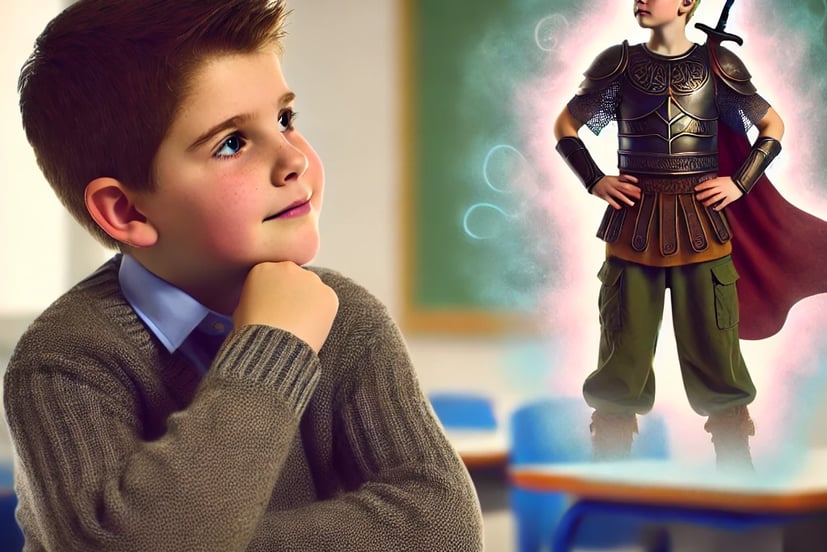

RPGs are known for their engaging challenges. Players might need to solve intricate puzzles, navigate dangerous situations, or engage in strategic negotiations with fictional characters. These scenarios require critical thinking, adaptability, and perseverance—skills that are essential not only in games but also in real life.
When children face and overcome challenges in an RPG, they experience a sense of accomplishment that is unparalleled. This builds resilience, as they learn that failure is not the end but an opportunity to try again with a new approach. This newfound resilience can translate into everyday situations, such as school projects or social interactions, where children feel more equipped to handle setbacks.
Studies have shown that structured gameplay like RPGs provides a safe space for children to experience both success and failure in a way that enhances their self-esteem. For instance, a child who successfully leads their team through a difficult quest may carry that sense of achievement into other areas of their life, such as leading a group project at school. At DnD for Kids, students are given the chance to tackle challenges regularly, helping them build both resilience and confidence in their problem-solving abilities.
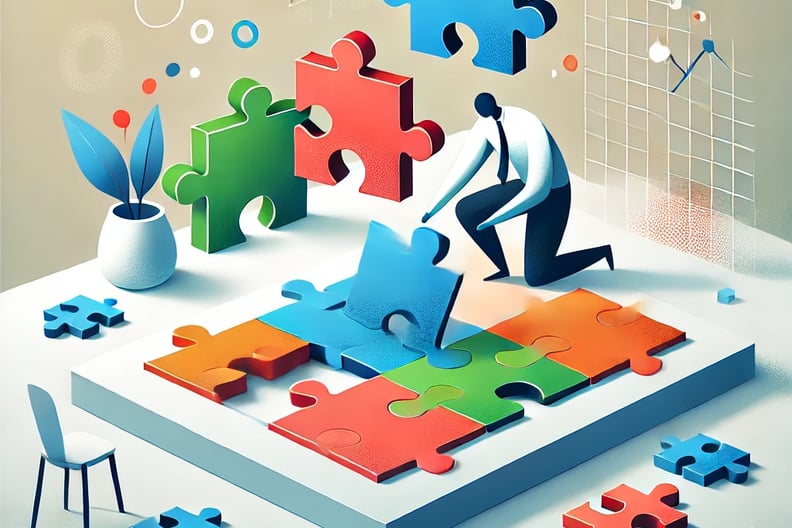

3. Collaboration and Teamwork: Strengthening Social Confidence
2. Overcoming Challenges: Building Resilience Through Gameplay
2. Overcoming Challenges: Building Resilience Through Gameplay
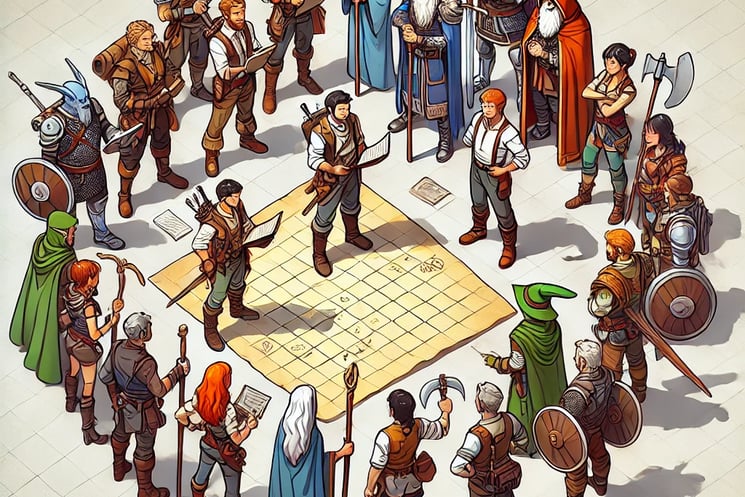

RPGs are inherently collaborative. To succeed in these games, players must communicate effectively, share ideas, and make collective decisions. This environment fosters teamwork and helps children develop essential social skills. For children who may struggle in traditional group settings—such as neurodivergent students—RPGs provide a pressure-free platform to practice these skills.
For example, a child who finds group projects in school overwhelming might thrive in the collaborative setting of an RPG, where the stakes feel lower, and the focus is on fun. Over time, they may become more comfortable working with others, contributing ideas, and taking on leadership roles within the game. This confidence in social situations can then translate into other areas of their life, such as interacting with peers or participating in class discussions.
4. Creative Expression: A Platform for Unique Talents
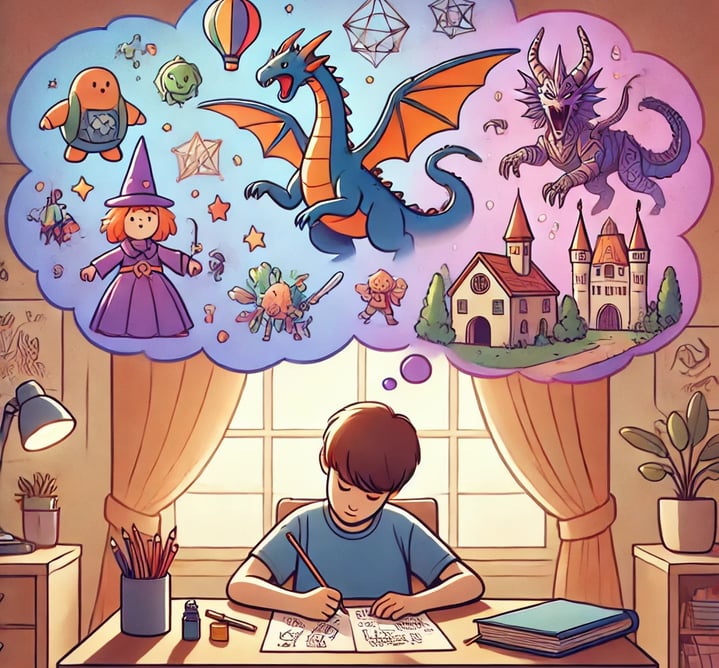

RPGs are a rich canvas for creativity, offering endless opportunities for storytelling, character development, and problem-solving. For many children, this is where they truly shine. Whether they’re crafting a compelling backstory for their character or coming up with a clever solution to an in-game problem, RPGs allow students to express themselves freely.
This creative expression can be incredibly empowering. Many children discover hidden talents, such as creative writing or public speaking, through the process of playing an RPG. A shy child who might hesitate to speak up in class could find their voice through their character’s dialogue, gaining confidence in their abilities as a storyteller and communicator.
Here creativity is not only encouraged but celebrated. Students are given the space to explore their imaginations and develop their own unique contributions to the game. Over time, this builds self-esteem as they learn to trust in their creative instincts and take pride in their ideas.
5. Feedback and Growth: Positive Reinforcement in RPGs
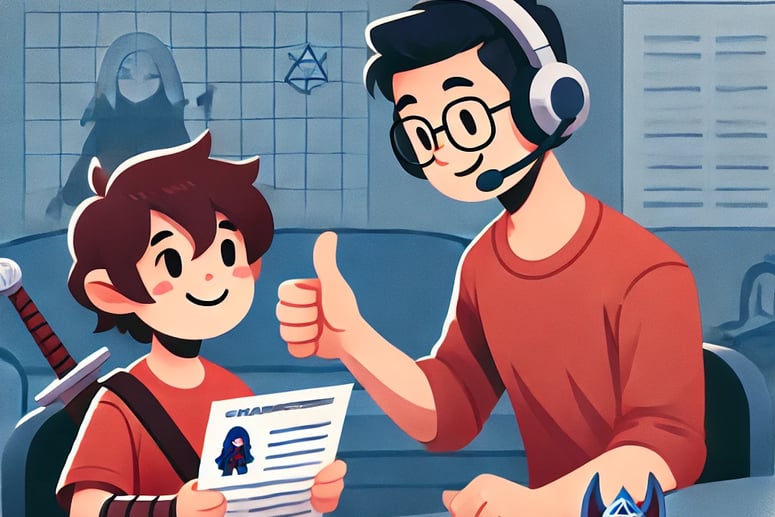

One of the most valuable aspects of RPGs is the constant flow of constructive feedback. In every session, Dungeon Masters (DMs) and peers provide encouragement and praise for creative ideas, clever strategies, and leadership moments. This regular positive reinforcement helps children build a strong sense of self-worth.
For example, a child who comes up with an innovative solution during a critical moment in the game might receive praise from their peers and DM, boosting their confidence. This supportive feedback loop is essential for helping children recognize their strengths and believe in their abilities.
We make feedback a key part of the learning experience. Students are consistently supported by both their instructors and their fellow players, creating a positive environment where they can grow and thrive.
6. Long-Term Character Development Mirrors Personal Growth
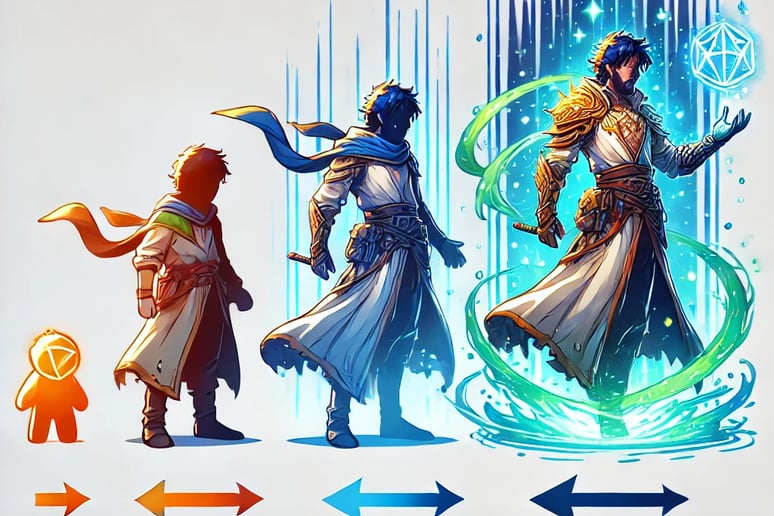

One of the most rewarding aspects of long-term RPG campaigns is the chance to see characters grow over time. Just as players invest in their characters, they also witness their own personal development mirrored in the game. A player who starts with a novice character and watches them evolve into a powerful leader may begin to see their own potential for growth in real life.
This connection between character development and personal growth is a powerful motivator for children. As they watch their character overcome challenges, build relationships, and achieve great things, they begin to internalize the idea that they, too, can grow and succeed with dedication and effort.
Here at DnD for Kids, students have the opportunity to participate in long-term campaigns, where they can see this growth firsthand. This sustained engagement helps reinforce the idea that confidence and skills are built over time, encouraging students to stay committed to their goals both in the game and in their everyday lives.
Conclusion
RPGs offer an incredible opportunity to build confidence in young learners. From stepping into new identities to overcoming challenges, collaborating with peers, and expressing creativity, these games provide a dynamic and supportive environment for personal growth. DnD for Kids harnesses the benefits of RPGs to create a unique learning experience, one that fosters resilience, creativity, and social confidence.
Parents who are eager to see their children thrive in a fun, engaging, and imaginative environment should consider enrolling them in an RPG-based learning program like DnD for Kids. With every session, children build not just their characters but their sense of self-worth, preparing them for success both in the game and in life.
Take the Next Step: Empower Your Child Through RPGs
Ready to help your child build confidence and develop essential life skills? Enroll them in DnD for Kids today and watch as they level up in both the game and in their personal growth. Join us in creating a supportive and creative environment where children can thrive and discover their true potential!
©2023
